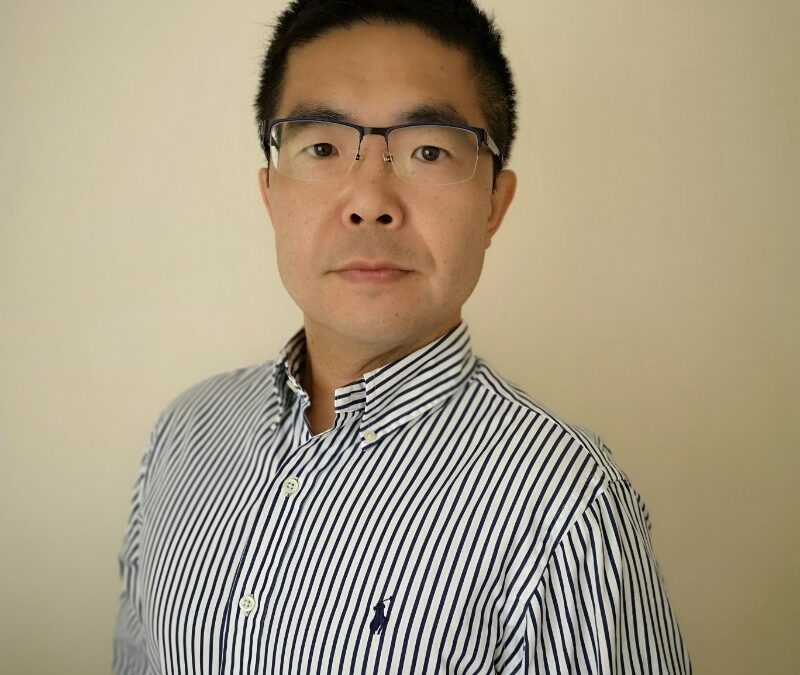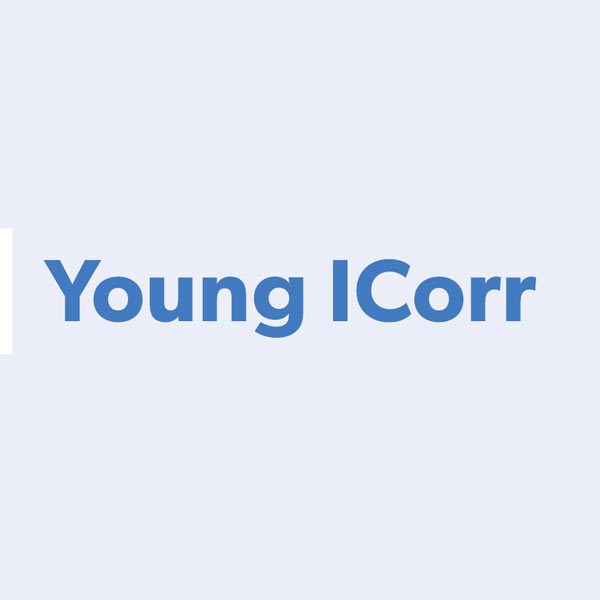The cart is empty!

Meet the Corrosion Specialist: Dr Yunnan Gao
11 Questions in 11 Minutes
This month, we have been speaking to Dr Yunnan Gao, twice past Chair of the Aberdeen Branch of the Institute of Corrosion and recently elected as the Institute’s Vice President.
A Fellow of ICorr (FICorr), a certified corrosion specialist of AMPP, a chartered engineer (CEng), a chartered scientist (CSci), and a fellow of Institute of Materials, Minerals and Mining (FIMMM), Yunnan currently works for BP as a Pressure System Integrity Engineer based in Sunbury.
Here is what he told us about his career to date – plus a couple of little-known facts about his personal life.
1. What did you aspire to be when you were younger?
When I was young, I held an aspiration to become a doctor. I was deeply inspired by a doctor’s ability to alleviate suffering and provide comfort to those in need. The idea of being able to diagnose and treat ailments resonated with my innate curiosity and compassion.
Though I didn’t manage to study medicine, I did become a doctor – though in engineering.
2. So, how did you end up as a corrosion specialist?
Having completed my PhD, MSc and BEng in materials and metallurgy, I was offered a job as a Material and Corrosion engineer at the former Research and Technology Centre of British Gas (later becoming DNV GL). I had two great mentors, Dr Tim Illson and Dr Glyn Morgan. It is to them that I owe my love of corrosion.
3. What was that first job like?
That first foray into material and corrosion engineering proved to be a significant milestone in my career. I was excited to apply my academic knowledge and skills that I had developed in the realm of professional engineering.
Over the course of five-and-a-half years in that first job, I tackled many industrial issues and challenges related to material and corrosion for worldwide clients. From conducting laboratory tests to carrying out desktop studies, from polishing metal samples and examining them using microscopy, to running corrosion modelling and undertaking risk-based assessment, I played a crucial role in ensuring the integrity and reliability of equipment.
Most of the projects I worked on in my first job were in the oil and gas industry, including material selection, corrosion modelling, risk-based assessment, and integrity threat assessments. I also carried out various projects for global oil and gas operators and Engineering, Procurement and Construction (EPC) contractors which included secondments to Oman and London to fulfil project requirements.
4. You decided to stick with oil and gas. How did your career progress?
In September 2013, I moved to Aberdeen in the UK North Sea working as a Senior Corrosion Engineer. Here I was tasked with overseeing the assets of Repsol Sinopec (formerly Talisman). This included working under the integrity management contract of Lloyd’s Register and Atkins and in-house employment.
In 2020, I was contracted by Saipem in France as a corrosion specialist and worked on some exciting asset integrity projects with ENI and Total assets. Subsequently, in 2021 I worked for Stork as a Senior Integrity Engineer managing pressure system integrity management of two assets owned by INEOS.
I joined BP in Sunbury, London in May 2022 as a Pressure Systems and Integrity Engineer, responsible for deploying the integrity management programmes to BP’s global oil and gas assets.
5. What have you enjoyed most about your career in corrosion?
The diverse and challenging nature of corrosion has made my career in this field immensely enjoyable and meaningful. The ever-evolving challenges and constant need for innovative solutions have kept me engaged and driven. Each project presents a unique set of circumstances, requiring a thorough understanding of materials, environmental factors, and corrosion mechanisms.
Furthermore, I have relished the opportunity to collaborate with multidisciplinary teams to develop comprehensive strategies for corrosion prevention and mitigation. The continuous learning and problem-solving aspects of the job have allowed me to expand my knowledge and expertise, making each day both exciting and fulfilling.
Being a large, global company, my current employer, BP, offers me the privilege of working within many interesting activities.
6. What career advice would you give to a young corrosion specialist?
To be open to continuous learning and remain updated with the latest advances in the corrosion field. One of the most exciting aspects of this industry is that corrosion is a dynamic discipline with new technologies, materials, and techniques emerging regularly.
Therefore, investing time in attending conferences, workshops, and seminars, as well as engaging in relevant professional organisations, like the Institute of Corrosion (ICorr), can greatly enhance one’s knowledge and expertise.
Additionally, seeking mentorship from experienced corrosion professionals can provide valuable guidance and insights – and the Institute is a great organisation for networking and finding mentors.
7. What is in store for corrosion professionals?
I believe that the growing emphasis on sustainability and environmental protection will drive the development of innovative corrosion prevention and mitigation technologies. This includes the exploration of new materials, coatings, and corrosion-resistant alloys.
Additionally, the integration of digital technologies will revolutionise the way corrosion is managed. Corrosion professionals will play a vital role in implementing and optimising these advanced techniques to enhance asset integrity and lifespan.
8. What have you gained from your membership of ICorr?
Being a member of the ICorr has been an invaluable experience, enriching both my personal and professional growth. ICorr’s seminars, workshops, and technical sessions have provided excellent platforms for networking with fellow corrosion professionals, sharing knowledge, and staying abreast of the latest advances in the field.
As a committee member of ICorr Aberdeen Branch for 9 years, and as its Chair for two sessions in a row, I have developed a rich, first-hand experience on the operation regional branches and their value and impact to the whole ICorr community, corrosion industry, and beyond.
Finally, while serving on the professional membership assessment committee (PAC) for three years, I have had the opportunity to assess and welcome new and like-minded corrosion professionals to the ICorr Community. This has been inspiring and self-fulfilling.
Let’s get personal with the corrosion professional!
We know that corrosion scientists aren’t all work and no play, so we asked Yunnan three final questions to learn a little more about him personally.
9. What’s your favourite food?
Although I left China for the UK 20 years ago, my favourite food is still Chinese food, especially hot and spicy dishes. From classic dishes like Kung Pao chicken and Mapo tofu, to lesser-known delights like Chongqing hot pot, Chinese hot and spicy cuisine never fail to tantalise my senses.
10. What do you like doing most outside of your professional life?
Watching sports is one of my favourite pastimes. In terms of physical activity, playing basketball and badminton are top choices for me. The strategic gameplay of badminton motivates me to play. Another activity I thoroughly enjoy is swimming, which helps me relax and recharge. Lastly, I like jogging as it allows me to maintain a healthy lifestyle as well as clear my mind.
11. Tell us a secret about yourself, something that might surprise fellow members (and something we can print!)
Over the last three years I have spent much of my spare time learning French. I’ve found it to be a beautiful language and easy to become immersed in its grammar, vocabulary, and pronunciation. I find great joy in exploring the intricacies of the language and striving to improve my knowledge and use of it, although I am still at the very basic level as we speak.
What do you want to ask a corrosion specialist?
Like so many other members of ICorr, Yunnan has enjoyed a career that has delivered huge variety of work and, aided by his involvement with the Institute of Corrosion, a network of professional colleagues and friends around the world.
Thank you, Yunnan, for your involvement in ICorr and your contribution as a corrosion specialist.
Right then, readers! What would you like us to ask the next ICorr member in our next ‘Meet the Corrosion Specialist’ interview? If you have a question for them, send us an email and we’ll try to get it answered.


